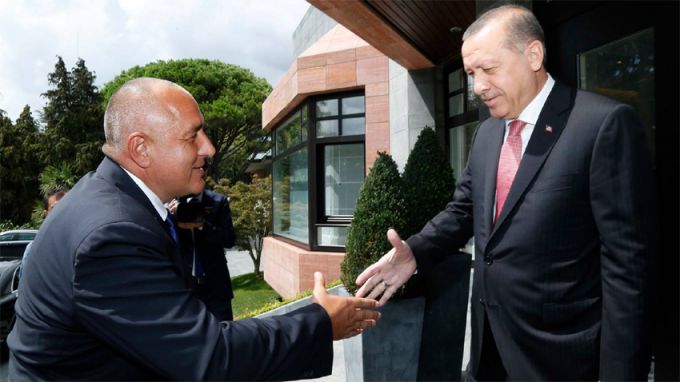
Last Friday, Bulgarian Prime Minister Boyko Borissov discussed in Istanbul with his Turkish counterpart Binali Yildirim the troubled relations between Turkey and the EU because of the refugee crisis. From Istanbul the two prime ministers called for keeping to agreed commitments and for solidarity. A day later, Borissov discussed these topics in Berlin with German Chancellor Angela Merkel. The visit caused much attention in Bulgaria because of the belief that Borissov has undertaken a mediation mission between Turkey and the EU, and because of some sharp comments. The Prime Minister himself said he unwillingly took the role of a mediator between Turkey and the EU.
The leader of rightist DSB, Radan Kanev, sarcastically said that Borisov has neither fulfilled "the Sultan’s order," nor was he able to protect the national interests in the talks with Merkel and that was why his visit was a clumsy attempt "to combine pre-election populism with an appeal to the Turkish ethnic voters and with fear and lack of knowledge in foreign policy." Political analyst Ilian Vassilev believes that mediation between Turkey and the EU, is a worthy but difficult task because it requires exceptional diplomatic skills while at the same time it was easy for the mediator “to burn like a fuse” in case of aggravating of relations between the two sides.
But Borissov's intentions were not focused just on being a mediator. In Istanbul Prime Minister Yildirim vowed that Turkey would do everything in its power to reduce the burden of migration pressure on Bulgaria. In Berlin, Chancellor Merkel vowed that Germany would assist Bulgaria with additional support for the security of its borders. The prime minister once again called for real solidarity in the EU and showed that despite Brussels’s denials, his opinion was that each EU Member State was looking alone in panic for a solution to the crisis.
In fact Borissov’s meeting with Merkel was not an attempt of mediation, but a part of a whole series of efforts of the German Chancellor for finding a coordinated solution to the refugee crisis. In the framework of the discussion Merkel also met with the government leaders of Austria, Croatia and Slovenia.
It cannot be denied that behind recent statements of Borissov, election intentions are also seen. On the eve of presidential elections the Prime Minister is trying to demonstrate independent behaviour in an extremely difficult environment in Europe. His solidarity with Turkey on the one hand causes approval among the ethnic Turkish electorate. On the other hand, such behaviour is approved by a number of Bulgarians who show scepticismabout the European policy of Sofia and sees it as subservience to Brussels at the expense of national interests. The same reasons have recently shown Borissovas a supporter of the softer policy of the West towards Russia. Such aspirations are observed more clearly among the opposition and probably the new policy of the PM is designed to neutralize them. Of course this could happen unless PM Boyko Borissov has no intentions for real political change. In such a case one should wait for the parliamentary elections to come.
English version: Alexander Markov
Making sense of the events from one whole year succinctly is, without doubt, a challenge, especially if we are talking about politics. The early elections for parliament, that have become something of a tradition in this country, took voters to the..
Romania closes dozens of border check points as of 1 January In connection with its full accession to the Schengen area, as of 1 January, 2025, Romania is closing more than 30 border check points on its borders with Bulgaria and Hungary, Radio..
From the distance of time, history and researchers will give their assessment of Bulgaria and its neighbourly relations in the first quarter of the 21st century. But even then, they will rely on the facts and perceptions of contemporaries about them...

+359 2 9336 661
